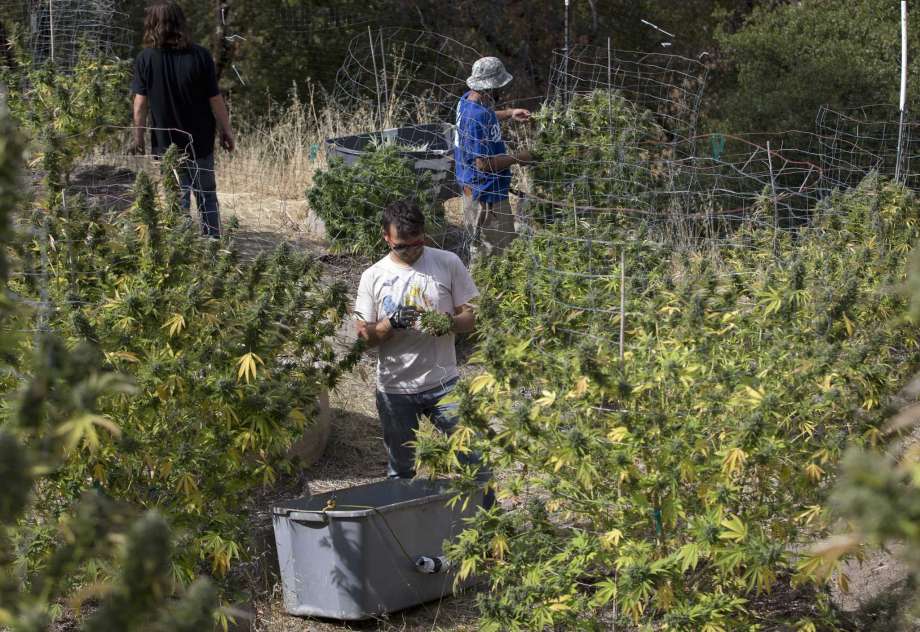When California launched its new adult-use and medical cannabis program at the beginning of January, most cannabis companies were not ready to get licensed, due to factors including the cost of preparing a license application, or local canna-business bans that have made getting a state license in some areas impossible. For these reasons among others, some cannabis business operators have decided to shun the licensing process altogether.
Now, less than two months after the launch of the program, the state has already sent out a number of warning letters to marijuana businesses operating without a license. “We’re finding them by going through normal resources that people would use to find retail locations in their area, whether it’s WeedMaps, Yelp, or Craigslist,” says Alex Traverso, chief of communications for the California Bureau of Cannabis Control (BCC).
The agency sent out over 500 letters, with plans to follow up by phone and email. “We’re letting people know we know you don’t have a state license, and you need to get one; here’s how to do it,” Traverso details. “We’re going to circle back around and if unlicensed activity continues, we’ll have no choice but to take the next step. This is the first phase of that enforcement effort.”
It’s not fair for folks who have made the effort to get licensed to have to compete with unlicensed operators, Traverso says. “We’re giving them the opportunity to come into the regulated market. They know we know they’re out there, and hopefully it will change their practices.”
One delivery service operator who runs his enterprise illegally out of Los Angeles (and wished to remain anonymous) says he doesn’t think it’s worth getting licensed. “I came in with an interest in trying to understand the industry and after a year, it’s super unclear,” he says.
The licensing process is so obtuse and expensive, he says he’d rather operate illegally or leave the the cannabis industry altogether.
“I think it’s very important to remember that there are an incredible number of barriers to entry to get onto the regulated market,” says cannabis licensing attorney Ariel Clark. “The big challenge is that these barriers involve a lack of local mechanisms for people to get permitted, so there are a small number [of local licenses] that are being issued, and there’s incredibly high cost of entry.” Many people who come to Clark’s office are working diligently to get local and state licensing, aiming to do everything legitimately — but it’s a slow and tricky process.
“I hear legacy operators say, ‘I’ve made this choice, I had two paths. I thought maybe I should just ride this until I’m off the rails, but I’ve chosen to get regulated; help me do that,'” Clark describes. “When it comes to commercial cannabis business activity, we voted for that. We passed that in 2016, so the failure of opportunities for local permitting really sidesteps the will of the voters as well.”
The licensing process is even more difficult for cannabis farming, which is overseen by the California Department of Food and Agriculture. According to a recent report from the California Growers Association, fewer than one percent of California’s nearly 70,000 cannabis cultivators have a state license. The report also includes estimates that 80 to 90 percent of growers who did business with legal dispensaries under the collective model prior to January 1st are now “being pushed to the black market.”
And for some of those who’ve been displaced to the underground economy, things aren’t going well. “You have people who are going to the black market for the first time,” says Julie Terry, a former boutique cannabis cultivator. “I had a friend who was ripped off at gunpoint, he didn’t know what he was doing.” It’s important to keep in mind a lot of California’s legacy farmers are older, in their 50s and 60s, trying to make a living to support their families.
“It hasn’t been the state, it’s been local code enforcement regarding zoning issues,” says Terry, who hails from Sonoma. “Most of our small operators have been displaced. They have been shut down or forced to move.
The issue for us is that we can’t find any place to go to; all the industrial properties are way too expensive. If you can find a lease, it’s exorbitantly expensive because it’s in a cannabis zone.”
Overall, the biggest challenge for cultivators to getting licensed, aside from local regulations or bans, is the cost, echoes Ruby Steinbrecher, president of Madrone California and a board member for the Sonoma Growers Alliance. “Even if your property doesn’t need a ton of work, it’s the cost of the permits and having to prepay taxes,” she says. “The state needs some kind of blanket regulation that requires all municipality regulations to mirror regulations of the state.” For instance, the state does not count immature plants toward a grower’s canopy for licensing, but local regulations do. That discrepancy can make things exorbitantly more complicated for growers.
Many growers are also up against local neighbor complaints, which prompt code enforcement officials to go after them. In Sonoma, for instance, there were 500 complaints last month, with 250 of those leading to shut downs, says Alexa Wall, a cultivator at Luma California, which is still awaiting its license. “I was at a community meeting and the code enforcement guy was there, saying how he just bulldozed a greenhouse yesterday because it was illegal,” she recounts.
Wall says she’s already spent more than $75,000 just in permitting fees, from the mandated site studies for farmers to contracting engineers to ensure operational compliance. “All these fees, and we don’t even have our permit, haven’t even begun the buildout of our infrastructure,” she says. “It’s frustrating for us…we’ve tried to do everything by the rules, but they’re still hitting us with something left and right.”
credit:420intel.com










